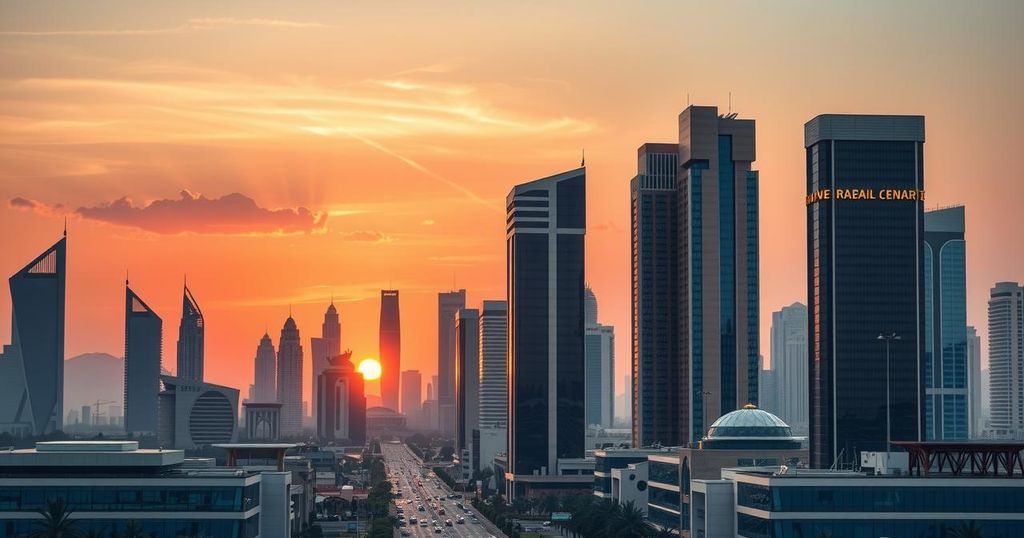Russia’s Diplomatic Perspective on Ukraine, Gaza, Sudan, and Syria

Dmitry Polyanskiy criticized the US’s role in the Ukraine conflict during an interview, asserting it exacerbated tensions. He praised Saudi Arabia’s emerging diplomatic influence while emphasizing the need for collective Arab action on the Palestinian issue and supporting Sudanese authorities amid the crisis. Polyanskiy also expressed hopes for a peaceful transition in Syria, maintaining Russia’s commitment to collaborating with the Syrian people.
The article discusses remarks made by Dmitry Polyanskiy, the first deputy permanent representative of Russia to the UN, during an interview on the Arab News program “Frankly Speaking.” Polyanskiy criticized the US’s approach to the Ukraine conflict, asserting that under former President Biden, the US contributed to the escalation rather than resolution. He suggested that a change in perception could have led to earlier conflict resolution.
Polyanskiy emphasized that the Biden administration fueled hostilities, stating that they were focused on strategically defeating Russia. In contrast, he commended the Trump administration for adopting a more realistic viewpoint that acknowledges military realities on the ground in Ukraine.
He noted that recent talks in Riyadh included discussions of a ceasefire linked to sanctions relief for Russia, underscoring Saudi Arabia’s emerging diplomatic role in international relations, particularly regarding the Russia-Ukraine situation. Polyanskiy praised Saudi Arabia’s efforts, noting their proactive approach toward facilitating dialogue between the conflicting parties.
In addressing the Gaza crisis, Polyanskiy mentioned Russia’s support for Palestinian rights while acknowledging the US’s greater influence over Israel. He expressed hope that Arab nations would mobilize effectively to advocate for the Palestinian cause and emphasized the necessity of a two-state solution as central to peace efforts.
He criticized previous normalization attempts between Arab nations and Israel that overlooked the Palestinian issue and raised concerns over the US administration’s current Middle East approach. Despite challenges, he is optimistic about Arab unity in addressing Israel-Palestine tensions.
Polyanskiy also touched on the ongoing conflict in Sudan, voicing support for Sudanese authorities against the Rapid Support Forces and expressing hope for a resolution that ushered in long-lasting peace. He justified Russia’s veto of a UN resolution and defended its stance against what it perceives as biased international portrayals of the situation, asserting a need to address food distribution issues rather than famine.
Regarding Syria, Polyanskiy discussed the implications of regime changes affecting Russia’s relationship with Assad and highlighted Russia’s aspirations for a peaceful transition, wanting inclusive representation of all Syrian factions in governance. He reaffirmed Russia’s commitment to friendlier ties with Syria, attributing longstanding friendship as a basis for cooperation and support during Syria’s transitional phase.
Dmitry Polyanskiy’s comments reflect Russia’s critical stance on the US’s handling of international conflicts, particularly in Ukraine and the Middle East. He advocates for new diplomatic centers, highlighting Saudi Arabia’s role, and emphasizes the importance of collective Arab action towards resolving tensions. Furthermore, Polyanskiy supports Sudanese and Syrian authorities while urging a focus on humanitarian issues and fostering positive relations regardless of current geopolitical struggles.
Original Source: www.arabnews.pk







